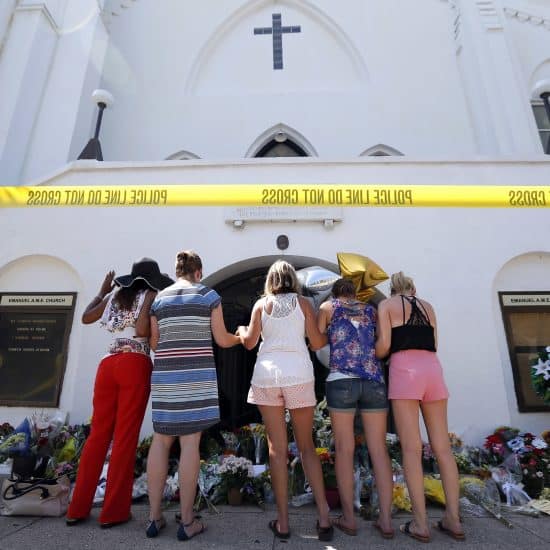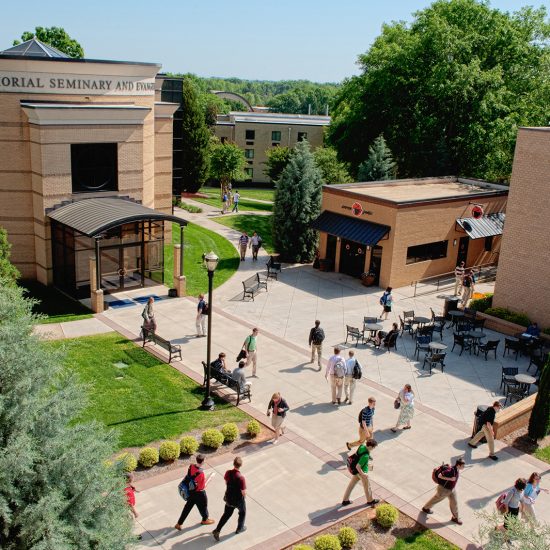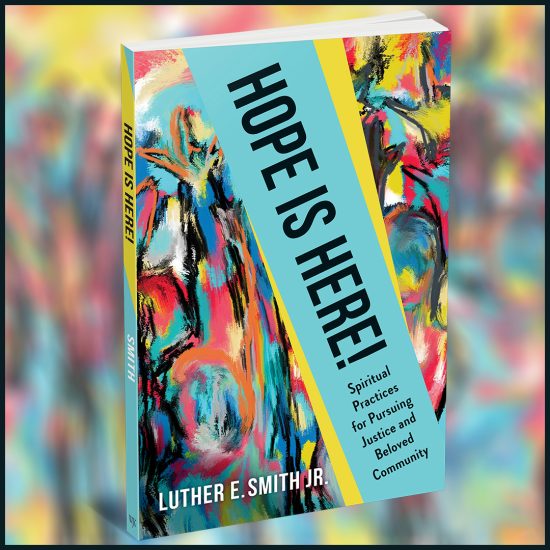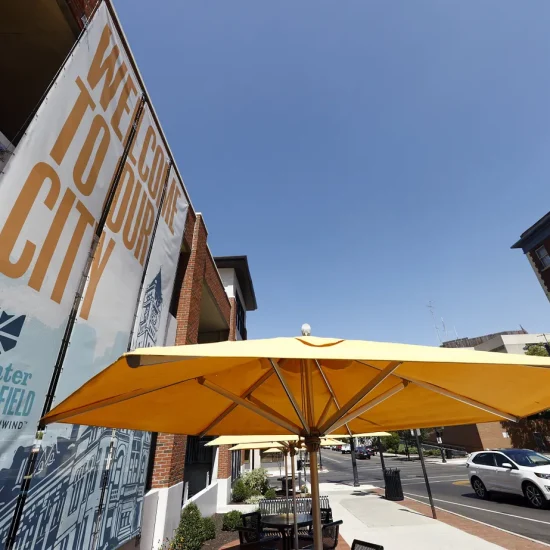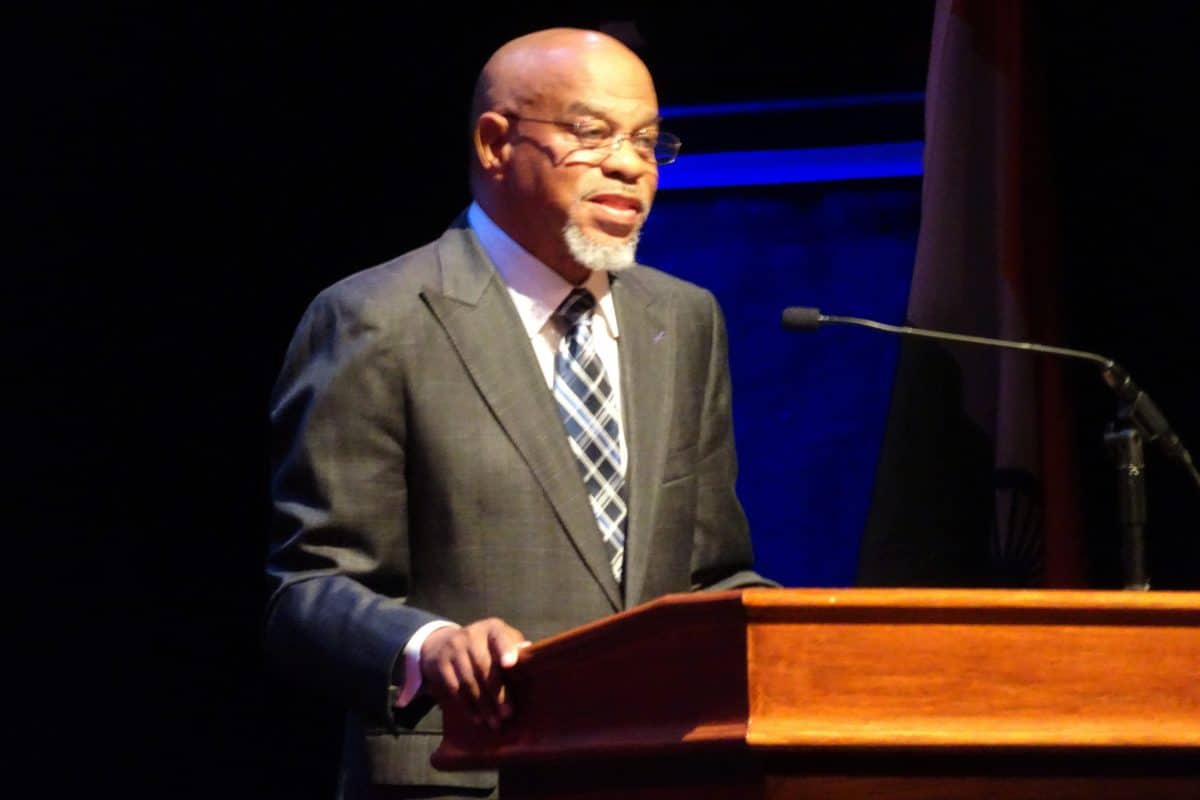
As the Baptist World Alliance’s annual gathering opened this week in person for the first time since 2019, Baptists from around the world came together at Samford University in Birmingham, Alabama, for a weeklong meeting focused on “standing for racial justice.” Preaching during the opening worship service Monday evening (July 11), John Jenkins Sr., pastor of First Baptist Church of Glenarden, Maryland, argued that Christians were too often silent when they should instead be angry.
“There’s far too many people of faith across the country who have remained quiet,” Jenkins declared before quoting from the most famous letter written in the city. “While in jail for protesting segregation in America, Dr. Martin Luther King Jr. wrote his Letter from a Birmingham Jail that said we would ‘have to repent in this generation not merely for the hateful words and actions of the bad people but for the appalling silence of the good people.’”
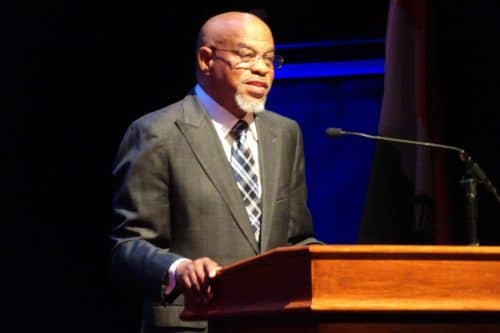
John Jenkins preaches during the Baptist World Alliance annual gathering in Birmingham, Alabama, on July 11, 2022.
Jenkins, who serves as chair of the board of the National Association of Evangelicals, called on churches that remain silent today to consider the witness of the early Christians.
“Wherever the early Christians entered a town, the power structure got disturbed and immediately sought to convict them for being disturbers of the peace and outside agitators. But they went on with the conviction that they were a colony of heaven and had to obey God rather than men,” he said. “They were too God-intoxicated to be intimidated.”
“Things are different now. The contemporary churches is so often a week, ineffective voice with an uncertain sound. It is so often the arch-supporter of the status quo,” he added. “Far from being disturbed by the presence of the church, the power structure of the average community is consoled by the church’s side.”
As an example of the backlash against efforts to address systemic racism, Jenkins pointed the treatment Colin Kaepernick after he kneeled during the National Anthem at NFL football games. Even that “nonviolent, peaceful gesture,” Jenkins said, led to him being “crucified” and “blackballed.” Such treatment, Jenkins added, “tells us that no method is going to be acceptable to the oppressors.” But Christians should react differently.
“The Church should be angry. We should be angry as we look at the statistics of what’s happening in our country,” Jenkins said. “We should be angry when we see the conviction rate of police officers who have murdered and killed people — innocent people, unarmed people. We have to look at our children and our fathers who have often been killed for no reason. The Church should be angry.”
“We should be angry at acts of racism, intolerance, White Supremacy, acts that seek to restrict and limit people from voting, and more. George Floyd’s crime was this suspicion that he had a counterfeit $20 bill. And for that, this unarmed man was held down until he could no longer breathe,” Jenkins added. “So yes, this is a reason to be upset. But now we have to be strategic at telling people why being angry is justified and understandable but being angry too long without a solution is a waste of energy.”
So, Jenkins called on churches to break their silence and speak out against racial injustices.
“Many companies are making statements, entire institutions of higher learning have made statements, public appearances. Celebrities, actors, activists are doing something. Where’s the church?” he thundered. “Peaceful protests around the country with people of all races, ethnicities, cultures all coming together and standing in solitary. I say, ‘Amen.’ It’s time for even the church to be angry at the prosecutors who don’t do their jobs.”
Other sessions at the BWA gathering throughout this week will also focus on issues of racial injustices, both in the U.S. and around the world and by looking at past examples and present realities.
During a workshop on Tuesday, historian Andrew Manis talked about the divergent reactions of White and Black Baptists during the civil rights efforts in Birmingham. Manis particularly focused his presentation on the leadership of Rev. Fred Shuttlesworth, who pastored Bethel Baptist Church during that time and whose home and church was repeatedly bombed by the KKK (including on Christmas). Manis noted that during that time, the city had two nicknames.
Whites called the town the “city of churches,” while Blacks called it “bombingham.”

